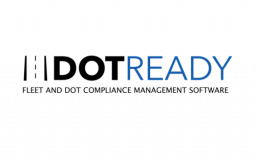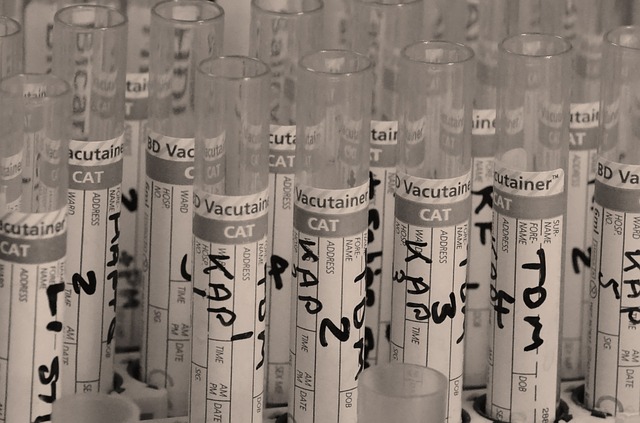Proposal for the Addition of Oral Fluid Specimen Testing for Drugs
The FMCSA has proposed to amend the drug testing procedures required by the Federal Motor Carrier Safety Administration for truck drivers and other DOT regulated companies regarding employees in safety-sensitive positions.
In short, the purpose of the rule is to increase testing efficiency while maintaining and strengthening public safety. If adopted, the cost of drug tests for companies could be reduced from $50 to $35 per test.
Companies Would Have Two Options
The change to regulations would give companies two options for testing safety-sensitive employees prior to employment as well as for random tests.
Current Procedure: FMCSA-regulated companies are required to test anyone before allowing them to work in a safety-sensitive position through means of a urine sample.
Proposed Change: Gives companies the option of collecting oral fluid samples through means of swabs, as well as the conventional means of specimen collection that require applicants to drive to an offsite facility and for the sample to be sent to a lab.
Why Now?
As the DOT continues to develop and roll out ‘safer roads‘ initiatives, they are looking for ways to increase test result accuracy without compromising other factors.
Since most samples are not collected under direct observation, a certain percentage of patients can produce a negative test result through means of cheating.
SAMHSA (Substance Abuse and Mental Health Services Administration) has said that its goal is to combat “industries devoted to subverting drug testing through adulteration, substitution, and dilution.”
Benefits of the Change
- Enhanced Flexibility
- Enhanced Versatility
- Decrease of Substituted AND Adulterated Tests
- Time and Cost Savings
- Reduction in Test Site Security Measures
- Versatility in Detection
From the Federal Register
The Department is proposing to add oral fluid testing as an alternative testing method because, as noted above, it has been determined by HHS to be scientifically viable for Federal workplace programs and because it provides a directly observed collection for every test. The collection of oral fluid is less invasive than directly observed urine collection and, therefore, is consistent with the careful balancing of an individual’s right to privacy with the Department’s strong interest in preserving transportation safety by deterring illicit drug use.
§ 40.210 – What kinds of drug tests are permitted under the regulations?
This proposed revision notes that oral fluid and/or urine specimens can be collected, and must be tested at HHS-certified laboratories. No other specimen methodologies are currently permitted.
Who may collect specimens for DOT drug testing?
- A urine collector must meet the training requirements of § 40.33.
- An oral fluid collector must meet the training requirements of § 40.35.
- To avoid the appearance of a conflict of interest, if you are the immediate supervisor of the employee being tested, you must not act as the collector when that employee is tested unless no other collector is available and you are permitted to do so under DOT agency drug and alcohol regulations.
- Employees are not permitted to be their collectors.
- An employee who is a qualified collector is not permitted to be their collector; another qualified collector must perform the collection in accordance with this part.
- A collector must not be related to the employee being tested (e.g., spouse, ex-spouse, relative) or a close personal friend.
If you elect to provide the laboratory results report, you must include the following elements, as a minimum, in the report format:
(A) Laboratory name and address;
(B) Employer’s name (you may include I.D. or account number);
(C) Medical review officer’s name;
(D) Specimen I.D. number;
(E) SSN or Employee ID from Step 1C of the CCF, if provided;
(F) Reason for the test, if provided;
(G) Collector’s name and telephone number;
(H) Date of the collection;
(I) For oral fluid only, collection device expiration date
(J) Date received at the laboratory;
(K) Date certifying scientist released the results;
(L) Certifying scientist’s name;
(M) Results ( e.g., positive, adulterated) as listed in paragraph (a) of this section; and
(N) Remarks section, with an explanation of any situation in which a correctable flaw has been corrected. (continue reading this section)
Summary
Basically, this new regulation would give companies the ability to administer oral swabs for testing, as opposed to the current standard of urinalysis.
Although the proposed change would still require companies and individuals to meet certain training requirements before administering any tests, as well as ensuring that there are no conflicts of interest present, the change in itself serves to benefit companies the most.
However,
DOTReady’s Stance
“We also deleted language referring to DNA tests since the use of those tests is prohibited elsewhere in the regulation (see 49 CFR 40.153(e) and 40.331(f)“.
Under 40.153(e) this is only regarding an MRO notifying the employee that additional tests are not authorized. This should remain as written and not be changed
Under 40.331(f) this is language specific to laboratories not releasing any specimen for other testing purposes including DNA without a court order and the requirement that the laboratory gain written permission from the ODAPC (Office of Drug & Alcohol Policy & Compliance).
Without this specific language in CFR Part 40, this will allow laboratories and/or MROs to release, use or potentially sell personal information such as DNA information to government agencies, NGO, and/or other third-party persons and/or affiliates, for purposes that potentially could violate the 4th amendment, Federal Privacy laws, HIPAA as well as personal data collection laws.
For these reasons, 40.331(f) SHOULD REMAIN UNCHANGED and any deletions to this section should NOT occur.
The deletion of this section will allow for DNA databases to be formed based on DOT Drug Testing specimens without the employee’s knowledge or consent.
What’s Next
The USDOT set the deadline for submitting public comments as March 30th, 2022.
To submit a comment, or read what others in the industry are saying about the proposed changes, visit this link
regulations.gov/document/DOT-OST-2021-0093-0001/comment
DOTReady is here to assist your company with any compliance questions you have.


